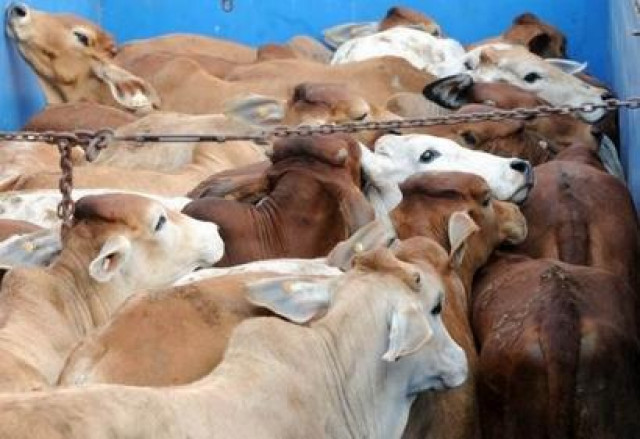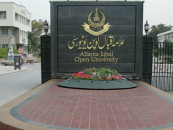Govt bans sale of unfit sacrificial animals
Livestock Department to deploy a veterinarian at every sale point

Only healthy sacrificial animals can be sold in the cattle markets after the government decided to establish an inspection system at all such markets.
This was stated by Livestock Additional Director Dr Naveed Sehri said on Sunday, adding that his department will deploy a veterinarian at every sale point in the markets.
Moreover, he said that sacrificial animals brought to the markets will be first disinfected and sprayed with pesticides.
Moreover, any animal brought to the market for sale and is found to be ill or unhealthy, will be provided with treatment.
Dr Sehri added that if any animal is found to be carrying an infectious disease or an illness that can make their meat inconsumable, they will be declared as unfit for sale.
Further, Dr Sehri said that the livestock department, with assistance from the district administration, will ensure the implementation of novel coronavirus (Covid-19) precautionary guidelines and social distancing protocols in the cattle markets to prevent the virus from spreading.
He also urged people to refrain from gathering at sale points.
People reselling sacrificial animals
With many people either unable or unwilling to go to the cattle markets set up by the district government to purchase sacrificial animals due to the pandemic, many people in the garrison city - particularly youngsters - have become resellers of sacrificial animals.
A survey conducted by The Express Tribune showed that a large number of people in Rawalpindi have bought additional sacrificial animals including cows and goats from remote areas and nearby villages.
The Express Tribune has learnt that if someone buys three or more animals at a time from the same vendor, it earns them substantial discounts apart from saving in transportation costs.
Rough estimates suggest that buying three to five cows together from a vendor can save up to Rs15, 000 on each animal when compared with market rates.
While keeping one or a pair of choice animals for themselves, they sell the remaining animals to make some additional money.
But instead of selling them in the markets or different neighbourhoods of the city, as was the practice in past years, they have taken to different social media groups to make the sale.
Youngsters post photos and videos of the animals while the potential customers are also offered a visit - either virtual or in-person - for inspecting these sacrificial animals and finalising deals.
Published in The Express Tribune, July 6th, 2020.



















COMMENTS
Comments are moderated and generally will be posted if they are on-topic and not abusive.
For more information, please see our Comments FAQ